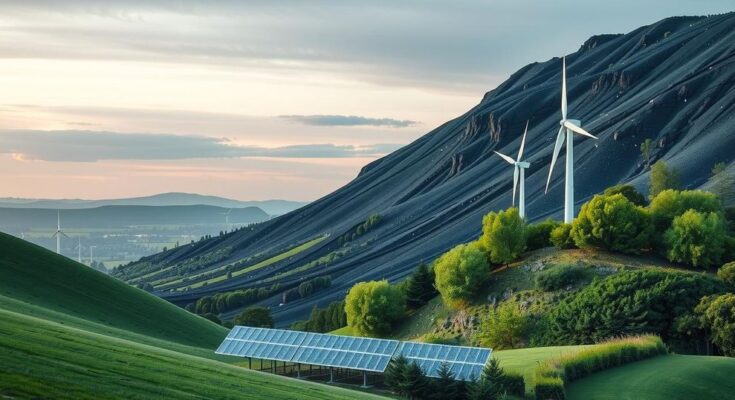Zimbabwe stands out as the only African country to submit its 2035 climate plan punctually, focusing on balancing energy security with emissions reduction. The key elements include increased coal use due to power shortages, transitioning towards natural gas, and expanding renewable energy projects despite challenges. The plan aims for a 40% reduction in per capita emissions by 2035, highlighting the need for external funding and support for clean energy initiatives.
In a noteworthy effort, Zimbabwe has become the only African nation to submit its 2035 climate plan, known as the Nationally Determined Contributions (NDC), on time to meet the UN deadline of February 10. Amidst global pressure to adopt greener practices, this plan acknowledges the short-term reliance on coal and gas amid economic constraints and energy security concerns.
The key elements of Zimbabwe’s climate strategy emphasize a balance between energy needs and emission reductions. The immediate focus is on increasing coal utilization due to drought-induced hydropower output reductions, which include refurbishing the Hwange coal power station and constructing a new 720 MW coal facility to remedy power shortages.
Furthermore, the plan incorporates a transitional shift to natural gas as a more environmentally friendly alternative in the medium term, aimed at lowering carbon intensity while ensuring reliable energy production. In addition, there are ambitions to expand solar and wind energy projects, though progress remains hampered by financial limitations and infrastructural challenges.
Zimbabwe aims to achieve a 40% reduction in per capita emissions by 2035 compared to a business-as-usual scenario, with projections indicating that energy sector emissions will peak in 2026 before a decline ensues. This strategy reflects the country’s struggle with the dual objectives of securing consistent electricity and gradually moving towards sustainable energy sources that are constrained by current economic realities.
It is essential that external funding is provided to accelerate Zimbabwe’s green transition; the nation currently lacks the financial resources to undertake these changes independently. Therefore, the sentiment conveyed is clear: “in coal we trust”. The urgency of the situation sparks a passion for protecting Zimbabwe’s energy stability amid advocacy for more stringent environmental regulations.
In summary, Zimbabwe has submitted a climate plan that seeks a practical balance between immediate energy needs and long-term sustainability goals. While the nation acknowledges the importance of transitioning to greener energy solutions, it also emphasizes the necessity of coal and gas in the short term due to economic limitations. For genuine progress toward cleaner energy, Zimbabwe will require external support and funding.
Original Source: www.techzim.co.zw




